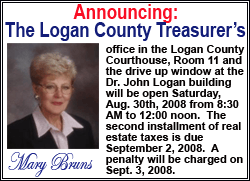| ||||||||
| ||||||||
Law enforcement sometimes uses secretly planted GPS devices to monitor suspects. The practice, often done without a warrant or court order, has been criticized by privacy advocates who argue that it is unconstitutional. The GPS feature on a cell phone has already helped solve at least one crime. In 2006, police in Virginia Beach, Va., used the GPS on a homicide victim's cell phone to find the phone and her purse in a garbage can behind a home. The home was linked to the man who was eventually charged with killing her. Jon Price, a trainer at Garmin Ltd., the leading maker of commercial GPS units in the U.S., started getting calls five years ago to work with law enforcement in cases involving GPS data from the company's units was being used as evidence. Price estimates he's helped with about 25 criminal cases, some of them involving GPS-equipped boats running drugs out of South America. He's testified as an expert witness in a half-dozen cases, including the Hanson murder trial.
"Typically the GPS data being used is for the purpose of contradicting (defendants') alibis," Price said. GPS data is usually just one part of the criminal case because attorneys also have to prove the defendant possessed the unit and entered the information into it. But Renee Hutchins, a University of Maryland law professor and former defense attorney, recently wrote an article suggesting GPS data is protected under the Fourth Amendment. She said police should only be allowed to acquire it by showing probable cause and getting a warrant signed by a judge. "I think that in the last couple of years, people are starting to be aware that if they have these units in their car, people can keep track of you," Hutchins said. "I think it's a growing public awareness. The problem is ... that most people feel like,
'I'm not doing anything wrong, so who cares?' But I think that's the wrong way of looking at it."

[Associated
Press;
Copyright 2008 The Associated Press. All rights reserved. This material may not be published, broadcast, rewritten or redistributed.

News | Sports | Business | Rural Review | Teaching & Learning | Home and Family | Tourism | Obituaries
Community |
Perspectives
|
Law & Courts |
Leisure Time
|
Spiritual Life |
Health & Fitness |
Teen Scene
Calendar
|
Letters to the Editor